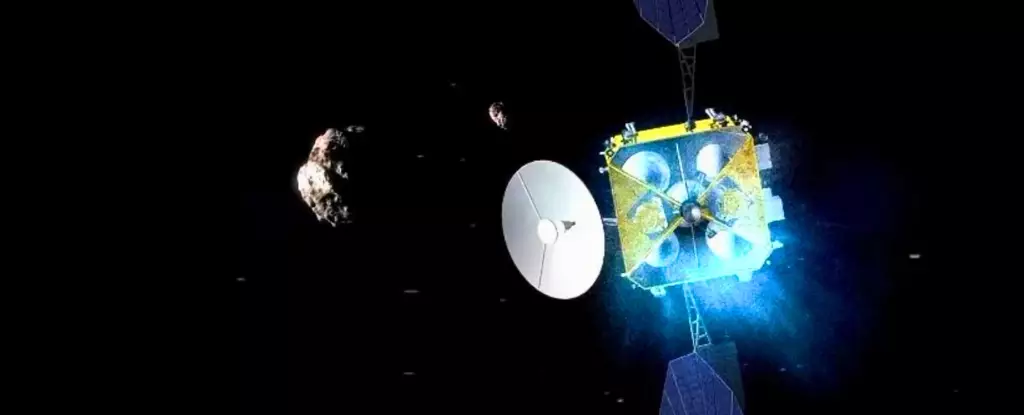China’s ambitious foray into space exploration took a monumental step forward with the recent launch of the Tianwen-2 probe, marking the nation’s inaugural attempt to retrieve samples from an asteroid. The initiative is not merely a scientific endeavor; it embodies China’s growing aspirations in a domain historically dominated by the United States and Russia. By investing substantial resources into its space program, China aims to realize what its leaders have termed a “space dream.” This venture signifies a pivotal moment in the landscape of international space exploration, where the balance of power is increasingly shifting.
Technological Triumph and Strategic Vision
The successful lift-off of the Long March-3B rocket from the Xichang launch site highlights China’s technological advances that are quickly catching up with established powers. The Tianwen-2 probe’s seamless deployment into a transfer orbit towards the near-Earth asteroid 2016HO3 represents a remarkable achievement. The Chinese National Space Administration (CNSA) reported the mission’s triumph, emphasizing the spacecraft’s smooth solar panel deployment. Such achievements are a testament to years of investment, research, and relentless ambition, as well as China’s strategic intent to assert itself as a formidable player in the exploration of the cosmos.
Expanding Horizons: The Importance of Asteroid Research
The primary objectives of the Tianwen-2 mission—collecting samples from the “living fossil” asteroid 2016HO3 and studying the enigmatic comet 311P—underscore the scientific importance of these celestial bodies. The asteroid, with its ancient materials, holds the potential to unlock secrets about the formation of the Solar System. In this context, the value of understanding our cosmic origins cannot be overstated; it not only satisfies humanity’s intrinsic curiosity but also has profound implications for evolutionary biology and planetary science. The convergence of this mission’s goal and the scientific community’s aspirations reflects a broader quest for knowledge in the face of the universe’s mysteries.
Cultural and Strategic Implications
China’s space program extends beyond scientific exploration; it serves as a signifier of national pride and technological prowess. As President Xi Jinping articulates his vision of a “space dream,” the enhancements made in space technology symbolize China’s larger ambitions for global leadership. The planning of crewed missions to the Moon and the establishment of a permanent lunar base further position China as a serious contender in long-term space exploration endeavors. These moves not only fortify national security but also extend China’s soft power, fostering international collaboration or competition as it navigates a new era in space exploration.
The Road Ahead: Challenges and Opportunities
The Tianwen-2 mission is expected to span around a decade, presenting both enormous challenges and unparalleled opportunities for discovery. Addressing the inherent risks involved in deep space missions requires not just technological ingenuity but also international cooperation and support from global scientific communities. As China advances through the intricacies of this mission, its willingness to share knowledge and collaborate could reshape international endeavors in space exploration, potentially paving the way for broader scientific advancements that transcend national borders.
China’s ambitious space program represents a daring leap into the unknown, one that holds the promise of unveiling new truths about our universe. As the Tianwen-2 mission unfolds, it captivates the imagination and inspires collaboration among nations united by the quest for knowledge.


Leave a Reply